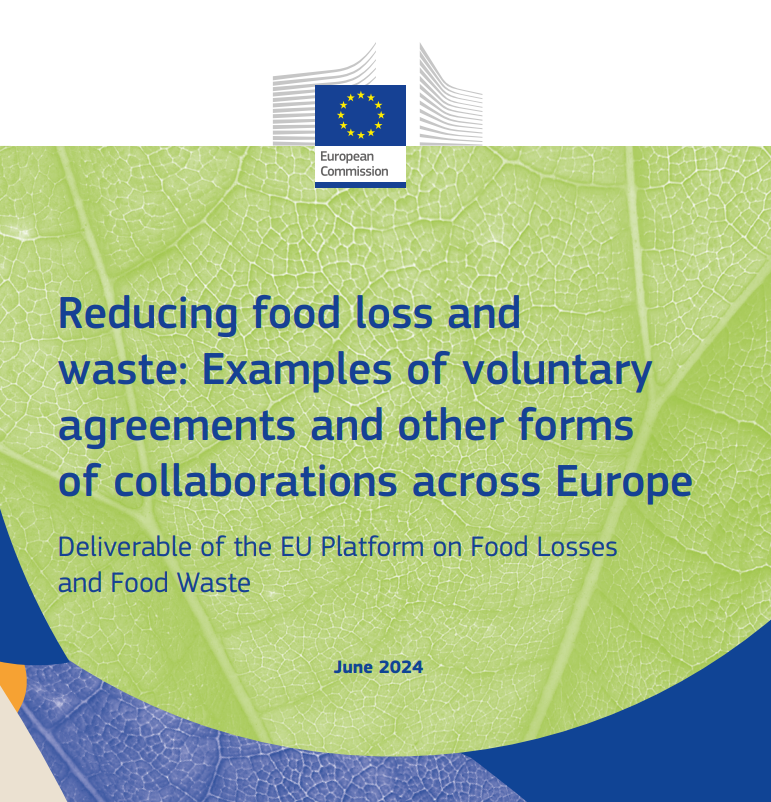The Action & Implementation sub-group of the EU Platform on Food Losses and Food Waste has been discussing the role of Voluntary agreements (VAs) to reduce food losses and waste in order to drive further action in this area and to progress faster towards the global SDG Target 12.3. Members of the expert group agreed to create a report with key learnings from members’ implementation of VAs in order to help and inspire other members who would like to start a new VA or to improve an existent one.
This report provides a extensive overview of VAs on food loss and waste reduction across Europe, detailing approaches, impacts and lessons learned, drawing from information gathered from 13 EU Member States, examples from Norway and the UK, and one international coalition of stakeholders. The report also includes three other forms of collaboration.
The primary strength of VAs lies in their collaborative nature, which unites governments, businesses, NGOs, and knowledge providers in a shared objective to prevent and reduce food loss and waste. As the examples from this report demonstrate, the collaborative approach fosters a culture of innovation and empowers stakeholders to develop tailored solutions suited to their specific circumstances. The strength of VAs lies in their capacity to engage stakeholders across the entire food supply chain. From producers to consumers, each sector plays an important role in preventing food losses and waste.
The success of VAs hinges on several key elements: taking ownership, setting commitments, sharing knowledge, and enabling public-private collaboration. Flexibility and adaptability serve as the guiding principles of successful VAs. Stakeholders are given different possibilities to tailor strategies and initiatives to their specific needs and circumstances. This agility enables swift responses to changing conditions and regulatory requirements, ensuring that food waste prevention and reduction efforts remain effective and pertinent in a dynamic landscape. By raising awareness of the environmental, social, and economic impacts of food waste, these agreements also inspire behaviour change and promote sustainable consumption practices. Through education and engagement, individuals and food businesses alike are empowered to take action to reduce food waste.
The report is published here.
Name of organisation : European Commission
Contact email: SANTE-FOOD-WASTE@ec.europa.eu
Further information: https://food.ec.europa.eu/safety/food-waste/eu-actions-against-food-waste/eu-platform-food-losses-and-food-waste/thematic-sub-groups/action-implementation_en
Date of publication: 2024-06-21

